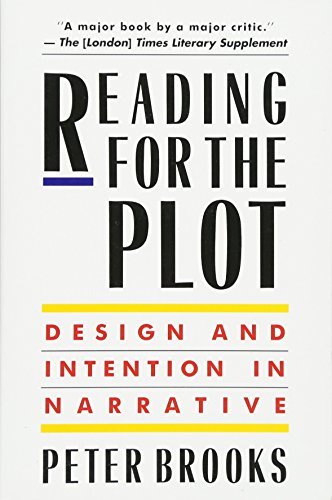What do you think?
Rate this book


Paperback Bunko
First published January 1, 1984
Psychoanalytic criticism, from its earliest inception, has been, with few exceptions, a lamentable enterprise. As early as 1910, just a year after Freud published The Relation of a Poet to Daydreaming, analysts and critics have been loosely appropriating the language of psychoanalysis to bring deeper understanding to literature. Part of the problem has been a lack of agreement on what (or who) exactly is to be analyzed. Analysts from Otto Rank, writing more than a century ago, to contemporary critics, most notably Harold Bloom, have focused their attention on the author, supposing that the text is a product of her unconscious desires. Another strain of psychoanalytic criticism has centered its attention on the fictive characters of literature. Much ink, for instance, has been spilled over Harry Potter's unresolved oedipal complex. Finally, and perhaps less intuitively, the reader herself has been the object of psychoanalytic criticism, a now near dormant theme that excited postmodern critics in the last decades of the twentieth century.
Such contrivances, argues Peter Brooks in Reading for the Plot, miss the point. Psychoanalysis, being primarily a narrative art, empowers the reader most when used to better understand the dynamics of the plot. More specifically, using Freud's model of psychoanalytic transference in addition to those formulations articulated in Beyond the Pleasure Principle, it is only the text itself that may be fruitfully analyzed with the tools of psychoanalysis, the goal being not explanatory but instead introductory. Only when "[t]he narrative text conceived as transference then becomes the place of interpretation" can psychoanalytic criticism overcome its dubious past and add hermeneutic value. Furthermore, it is best employed as an admixture to an existing body of narratology, specifically to that of the Russian Formalists and their focus on Fabula and Sjuzet. If you are still following at this point, then you'll likely find Brooks' book a compelling read.
Yet to focus solely on the theoretical memes of Reading for the Plot would be to neglect the equally interesting application of Brooks' theory in the world of existing novels. In chapters on Stendhal’s Le Rouge et le noir, Dickens’ Great Expectations, Sue’s Le Mysteres de Paris, Flaubert’s Le Education Sentimentale, Conrad’s Heart of Darkness, and Faulkner’s Absalom, Absalom, Brooks attempts to articulate, mostly with success, exactly how structures, functions, sequences, and plot allow the reader to understand the text as “an interpretive model of life.” Though I had read none of the works discussed, I was for the most part still able to engage with the text. Chapter 6 on prostitution and the serialization of the novel was interesting as historical background on the novel and its treatment of the oldest profession. The chapter on Great Expectations was also illuminating and I will soon read the book itself. Despite my having read other criticism of Faulkner’s work, the chapter on Absalom, Absalom was cumbersome and not as convincing. These are surface impressions only. It would take me at least one, maybe two, more readings of this book and a great deal of other reading in order to be able to offer up anything more penetrating or insightful.
If like me you'll be entering for the first time into the world of Russian Formalism and (slightly less so) Sigmund Freud, then prepare to spend some time bringing yourself up to speed as you work through the four chapters that focus on the theoretical aspects of Brooks’ argument. Barthes’s S/Z and Lukac’s The Theory of the Novel are also helpful companion books. Though marketed (on the back cover) to both 'literary theorists' and 'readers of the novel' alike, it crossed my mind that it will be those literary theorists who also read novels that will most appreciate Brooks’ narratological criticisms. This is not to say that the book itself, for the more casual reader, is not worth reading; but rather, an advisory to fellow journeymen critics and bookworms not versed in the classics to prepare for rather arduous conditions. That said, if you the reader not steeped in the world of narratology should persist, it's unlikely that you will read another novel in the same way you have read novels in the past. Reading for the Plot is a seminal work of criticism and having read it from cover to cover, I will definitely read my next novel with a far greater literary competence.
© Jeffrey L. Otto July 21, 2012"Why have you told me this frightful story?"
To which he replies, "To offer my services, should they be needed."